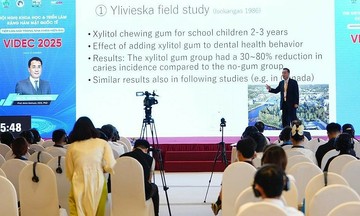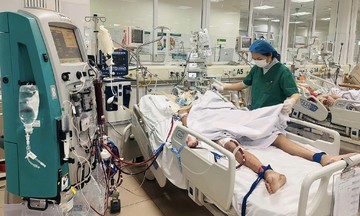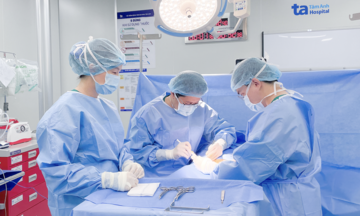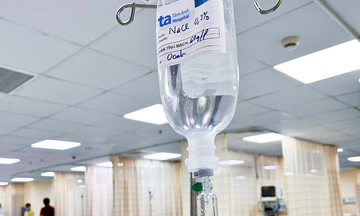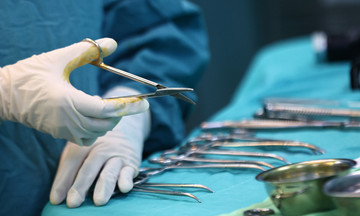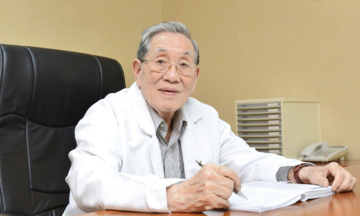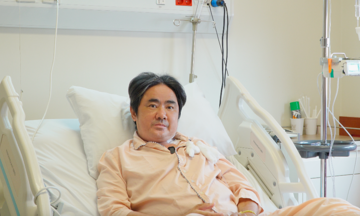Quyet was diagnosed with an undescended right testicle just one day after birth. By the age of 2, the testicle had not descended into the scrotum, and he experienced frequent rectal prolapse. His family brought him to Tam Anh General Hospital in Ho Chi Minh City in early July.
Dr. Nguyen Do Trong, a pediatric surgeon, explained that a testicle remaining in the abdomen is exposed to higher temperatures than in the scrotum, which can lead to necrosis, torsion, reduced fertility in adulthood, and an increased risk of testicular cancer. "Surgery helps bring the testicle to its correct position, reducing the risks of damage, with a success rate of 90%," Dr. Trong said.
The surgical team performed a 90-minute laparoscopic procedure to bring down the undescended testicle and remove the prolapsed rectal mucosa, reducing the risk of bleeding, ulcers, or bowel obstruction. Quyet recovered well and was discharged the next day, returning for a follow-up appointment five days later.
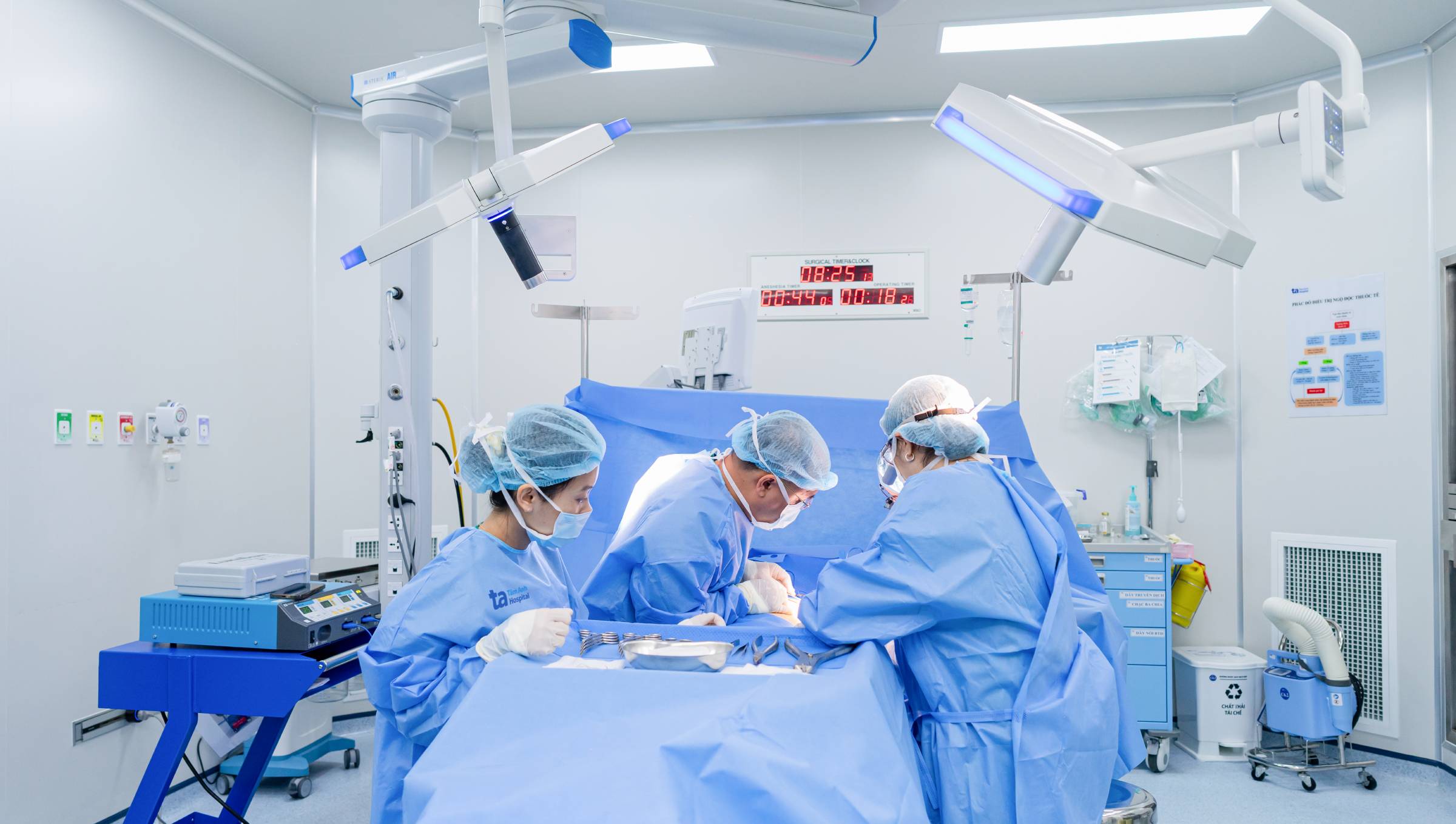 |
Dr. Trong (center) operating on the patient. Photo: Dinh Lam |
Dr. Trong (center) operating on the patient. Photo: Dinh Lam
According to Dr. Trong, many children arrive at the hospital with multiple medical conditions. Depending on the child's age, the cause and severity of the conditions, doctors develop a suitable treatment plan. These "two-in-one" or "three-in-one" surgeries provide comprehensive treatment, allowing for faster recovery, cost savings, and minimizing health impacts.
Several factors can cause undescended testicles, including abnormalities in the genitofemoral nerve, hormonal imbalances, and issues with the testicular nerves, epididymis, or blood vessels. Undescended testicles are usually painless and may or may not be palpable, so some cases are not detected early. A postnatal ultrasound or regular checkups can identify this condition.
Dr. Trong recommends regular checkups for children. If a child has an undescended testicle, parents should take them to a hospital with a pediatric surgery department for examination and surgery before the age of two. The optimal age for surgery is between 6 and 12 months, when the testicle is less likely to be damaged and has a better chance of recovery.
Hoai Thuong
*The patient's name has been changed.
| Readers can submit questions about children's health here for doctors to answer. |





